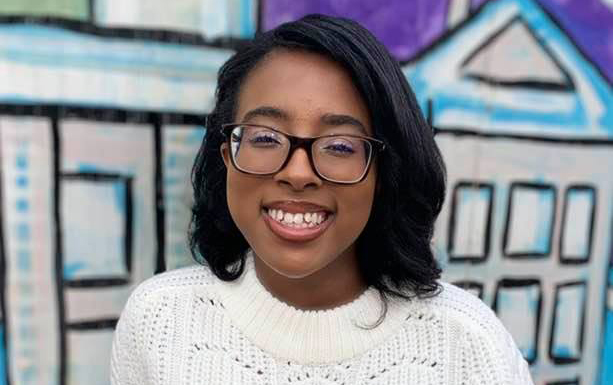What does Black Lives Matter mean? There have been many assumptions going around that this means Black lives matter more, or Black lives matter above other lives—no, that is not at all what this means.
It means that Black lives should matter and be valued at the same level as any other life. Our opinions, thoughts and pain should be taken seriously.
Why must we continue to say this, and why is this the boldest statement of our movement?
The Black struggle has many times been overlooked and it is hard for us to be seen and heard.
America’s reality right now is that many Black generations have gone through so many struggles and right now we have so much pain and anger and we’re just trying to get it out. That’s why I have gotten involved in this movement.
Ever since I was a little girl I’ve had a burden for my people’s climate of racism. That is why I continue to use social media as a key factor for letting people know what is really going on in our society.
I can only do so much on my platform, but the church needs to be involved in this movement, for so many reasons. And one way to do this is through illustration. There are many analogies in the Bible and one key text that comes to mind when I think about Black Lives Matter is, Love thy neighbor. Now that is a command. And it should be revered as much as the Ten Commandments. It’s not a conditional command of love thy neighbor if they have the same view as you or the same political party as you. It’s love thy neighbor no matter what. You can’t choose and pick.
We are the remnant church and we are supposed to be reflecting God in everything we do.
Love thy neighbor should be looked at by congregations as Black lives matter also.
Love thy neighbor should be looked at with the same reverence as any other commandment that God has given.
This is a part of what is going on right now.
My message to the NAD administrators, conferences and pastors is to not be afraid to discuss racism within the church. This is not a political issue. It is a right or wrong issue, a good and evil issue. We need to get out of the mindset of keeping congregations comfortable and make our congregations feel uncomfortable, just as Jesus’ ministry made people uncomfortable. We need to be making people understand what is really going on.
Finally, I would like to address my youth, Gen Z. Let your voice be heard. Don’t be afraid to stand up for what is right. You should never be scared of losing followers. You need to be the change that you want to see around you. You can’t stand behind a screen and act like nothing is going on or sweep it under the rug. You must stand for what is right.
My last point is that Jesus is coming soon. And he’s taking those who are standing for what is right with him. If you’re my age, you are the future. If you’re standing on the wrong side of history, you need to realize that you are the ones who can make a change in society. What you do affects everyone. So if everyone is on board with this movement, this country can move forward.
So I advise everyone, especially my Gen Z, to be part of this movement and push it. If you stand with Jesus and are a part of God’s fellowship, don’t be afraid of being ridiculed or brutalized. Jesus was brutalized for the things that he believed. We all know what Jesus believed and what he stands for. If you are a disciple of his and are a part of God’s fellowship, this is a movement you should be standing behind.
This message is part of an intergenerational conversation about BLM Too, hosted by the Conscience and Justice Council on July 18, 2020. Priscilla is a recent graduate from Midland Adventist Academy with plans to attend Oakwood University, a historically Black Seventh-day Adventist University in Huntsville, Alabama.









